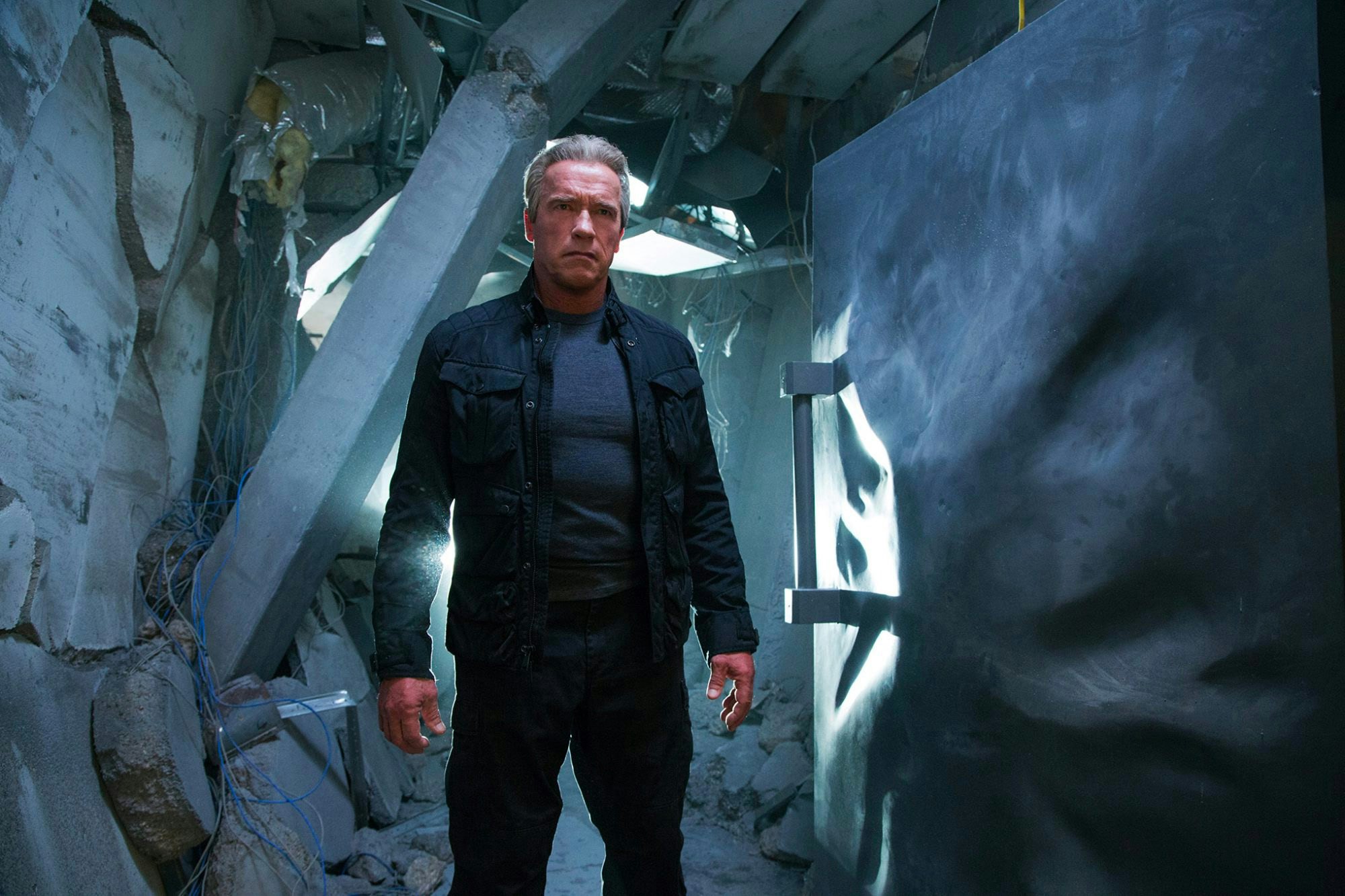
Terminator: Genisys introduced us to a radically different take on Sarah Connor. She’s not the hapless waitress from the original Terminator, or the whacked-out mercenary in T2: Judgment Day, but a curious mix of both.
This Sarah hails from a different timeline. She knows she’s destined to give birth to humanity’s savior, and that she’ll train him to win the war against hostile AI. She knows because that enemy, Skynet, sent a cyborg assassin to kill her when she was just a child. But she’s saved by a reprogrammed Terminator unit, the T-800, who becomes her guardian and teaches her to fight for herself.
It’s weird to see Sarah so close to a Terminator, even after her reluctant partnership with a T-800 in Judgment Day. The bond she shares with a similar unit in Genisys isn’t unlike that between a father and a daughter; Sarah nicknames the Terminator “Pops,” and though he can’t reciprocate her affections, he’d clearly lay down his life to protect her.
It’s an interesting way to remix the T-800’s ever-evolving role in the franchise, but even Pops seems aware of how his presence preys on our nostalgia. When he and Sarah have to go their separate ways, she wraps her robot guardian in a fierce bear hug. Pops, naturally, questions the logic. “This is a meaningless gesture,” he drones. “Why hold on to someone when you know you must let them go?”
In a roundabout way, that sums up just about everything wrong with Genisys. The aptly-named sequel/reboot was meant to bring James Cameron’s 30-year franchise back to square one and spawn an all-new trilogy. It assembled all the parts that made previous installments successful: a battle-hardened Sarah Connor (Emilia Clarke), some time-traversing romance, and perhaps most importantly, Arnold Schwarzenegger’s iconic T-800. It follows the familiar beats of the first two films by sending Kyle Reese (Jai Courtney) back in time to protect Sarah, only to find her already doing just fine on her own.
What could have been a clever remix gives way to ham-fisted nostalgia. Genisys holds tight to the ideas and characters that once raked in so much cash, leaving little room for the new ideas it wants to introduce. That Schwarzenegger is still the best part of the saga isn’t exactly damning, but it’s ironic for a film trying to carve out a fresh future. Still, Genisys does have its finger on the pulse when it comes to humanity’s own dependence on AI.
Every Terminator film, good or bad, has positioned machines as man’s natural enemy. We create Skynet, Skynet becomes self-aware, Skynet destroys us (or tries very, very hard to). It’s brutal, dread-inducing stuff, enough to make you swear off technology forever. Genisys, however, knows it’s too late to regard machine intelligence with suspicion. The film doesn’t explore much of humanity’s fight with the machines, because humanity already gave up the fight years ago.

The takeover begins long before Skynet achieves sentience, and it’s not a self-aware computer leading the charge. Instead, it’s our cell phones, social media, and all the apps designed to synchronize our lives. Technology becomes society’s crutch, and that leads to the invention of the super-app Genisys, which is actually a front for Skynet.
Not even Cameron could have predicted this very-plausible future, which may be why the filmmaker loves Genisys. “Terminator ultimately — if you can slow it down — is about our relationship with our own technology, and how our technology can reflect back to us,” Cameron said in 2017. “But also … it’s about how we dehumanize ourselves. In a time when people are being absorbed by their virtual-social world — I mean, just look around. I always say: If Terminator was about the war between the humans and the machines, look around any restaurant or airport lounge and tell me the machines haven’t won when every human you see is enslaved to their device.”
Genisys doesn’t spend much time unpacking the ramifications of this, but it’s still a clever detail. The film takes a hatchet to Cameron’s classic fable of man versus machine, and if it committed further, it may have succeeded in rebooting the franchise.
Unfortunately, it wasn’t to be, and for all its promising ideas, Genisys also has quite a few bad ones. The future and the past are the true elements at war, and it’s clear who wins. The Terminator franchise couldn’t reinvent itself, but at least it tried to adapt to the times.







